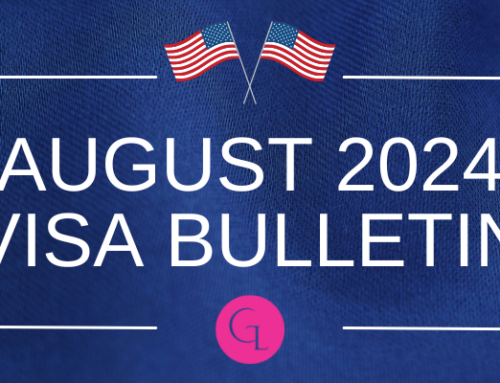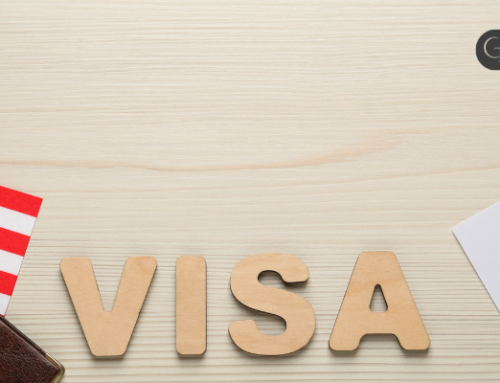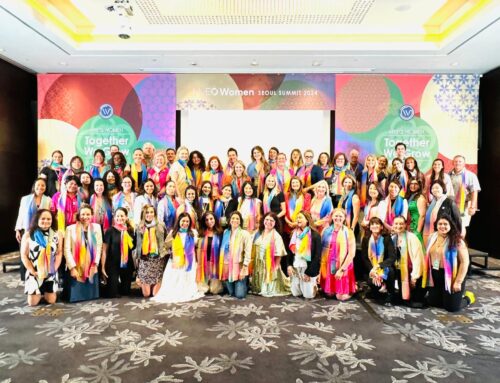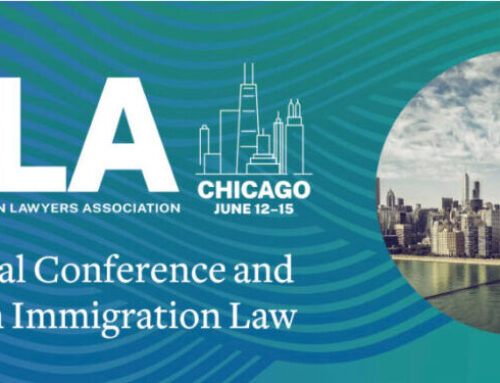What Is Consular Processing – And Does It Apply To You?
Consular processing is the process of applying for a U.S. visa from outside of the United States. The U.S. Department of State faces a massive backlog of unprocessed visa applications, as reported by the New York Times. This backlog comes after the previous Administration’s suspension of routine visa services, coupled with the pandemic’s far-reaching and varied restrictions on worldwide travel and movement. If you’re applying for a U.S. visa from your home country, that application process is known as “consular processing.” In some instances, visa applicants who are already in the United States may need to leave the U.S. and return to their home country for consular processing.
Last year, President Biden issued Executive Order (E.O.) 14012 on Restoring Faith in our Legal Immigration Systems to combat persistent challenges and resolve the immigrant visa backlog. Currently, the application for permanent residence, commonly called a green card, varies depending on whether you are already residing in the U.S., or living in your home country. The latter requires consular processing.
Here are some frequently asked questions about immigrant visa (“green card”) consular processing.
Green Card Consular Processing FAQs
What Is Adjustment of Status (AOS)?
Generally, green card applicants who are physically present in the United States through a lawful entry can apply for permanent residence through adjustment of status. AOS is a process by which an individual inside the U.S. applies for residency to the U.S. Citizen and Immigration Services (USCIS) on the basis of an approved or simultaneously filed immigrant petition (l-130, l-140 or l-360).
In general terms, to qualify for AOS, an applicant must have:
- Lawfully entered the U.S.;
- Maintained valid nonimmigrant status in the U.S.; and
- Be admissible to the U.S.
There are a few exceptions to the above requirements, such as in cases where the applicant is married to a U.S. citizen. An AOS applicant can apply for lawful permanent resident status without having to return to their home country to complete visa processing.
What Is Consular Processing?
U.S. Citizen and Immigration Services (USCIS) describes consular processing as follows:
“If you are outside of the United States, you may apply at a U.S. Department of State consulate abroad for an immigrant visa in order to come to the United States and be admitted as a permanent resident. This pathway is referred to as consular processing.”
Once the USCIS approves an immigrant petition, it will forward it to the U.S. Department of State’s National Visa Center, which will process the case for scheduling at the embassy or consulate where the applicant lives. The petitioner and the beneficiary will then be notified how to proceed.
Do You Have To Leave The U.S. For Consular Processing?
Some visa applicants are not eligible for Adjustment of Status. Generally, if you entered the U.S. unlawfully, or your nonimmigrant status has expired, you are not eligible for AOS and will have to leave the U.S. to apply for a visa through consular processing. There are some exceptions to this, but that is the general overview.
What Is An Immigrant Petition?
Any foreign citizen wishing to apply for an immigrant visa must be sponsored by a U.S. citizen or lawful permanent resident relative, or a prospective U.S. employer. The petitioner must submit the immigrant petition first, before the beneficiary can apply for an immigrant visa.
The following are the general types of immigrant petitions:
- An I-130 is used to establish a valid family relationship between a sponsor and his/her qualified relative (spouse, child or parent).
- An I-140 is used to establish a relationship between U.S. employers and foreign workers.
- An I-360 is for self-petitioners in specific categories.
Have U.S. Embassies and Consulates Re-Opened for Consular Processing?
As Covid-19 restrictions begin to ease, many U.S. embassies and consulates have resumed visa appointments. Due to the considerable variance in restrictions from country to country, it’s important to check the website specific to the U.S. embassy or consulate in the country you reside in.
What are the Current Wait Times and Backlogs for Consular Processing?
The U.S. Department of State is currently faced with an eight-fold increase in visa backlogs resulting from the worldwide closures of U.S. Embassies and Consulates since the beginning of the Covid-19 pandemic. In some cases, it can take two years for an applicant to be scheduled for an interview. Here is a link to the Department of State website providing some relevant data: https://travel.state.gov/content/travel/en/us-visas/visa-information-resources/visas-backlog.html.
Do You Have Questions About Consular Processing?
U.S. immigration law is complex, particularly when dealing with unlawful entry or inadmissibility issues. If you are undergoing consular processing or applying for a waiver of inadmissibility, our experienced Atlanta-based immigration lawyers can guide you through the process and help you avoid mistakes that can cause delays or denials. Garvish Immigration Law Group has the expertise and skilled immigration lawyers to provide your application with the best chance for approval. Contact us to discuss your immigration case at 1.800.951.4980 to discuss how we can help you achieve your immigration goals.






